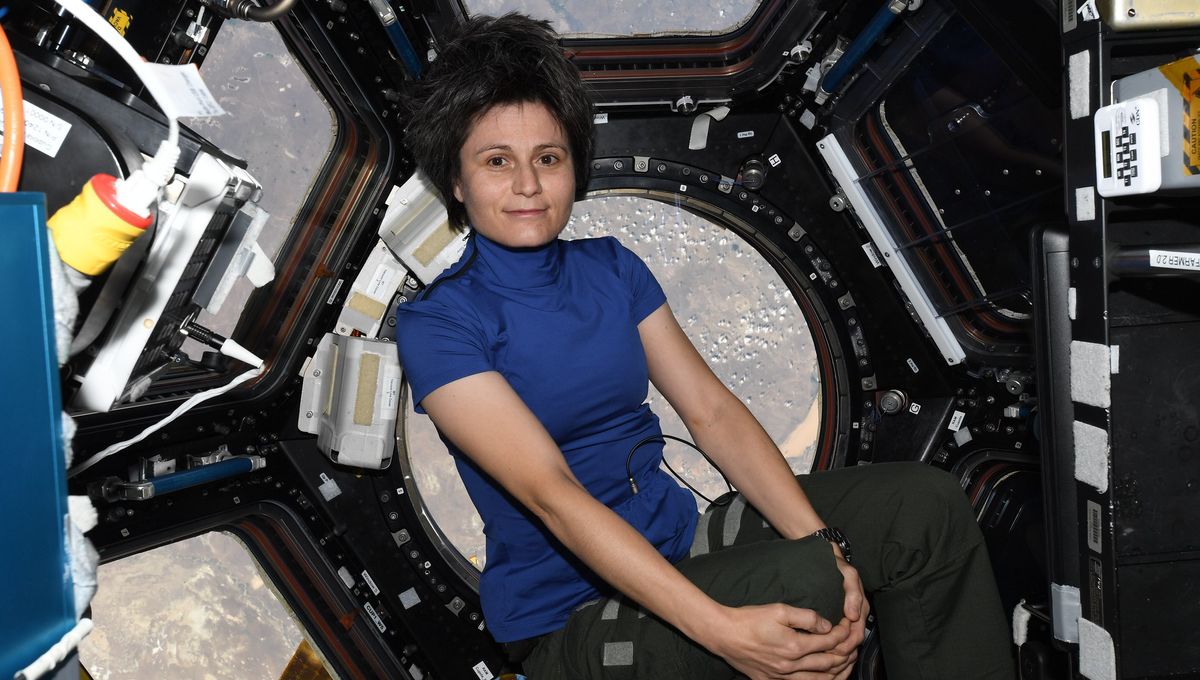
Astronaut Samantha Cristoforetti is doing her bit for sci-comm on the International Space Station (ISS), answering questions that come her way on TikTok and Twitter. Her most recent question is something many people may be curious about but perhaps a smidgeon embarrassed to ask: “How do you handle menstruation in space?” Before breaking down the answer to explain the inner workings of the ISS, Cristoforetti shrugs matter-of-factly: “Just like you do on the ground.”
When Sally Ride made history as the first American woman in space, she and her female astronaut colleagues had to deal with a lot of sexism and gender bias within the space program. For example, the NASA engineers in charge of putting together the first women astronauts’ flight kit assumed they would all want to wear makeup in space.
“The engineers at NASA, in their infinite wisdom, decided that women astronauts would want to wear makeup—so they designed a makeup kit. A makeup kit brought to you by NASA engineers [Laughter],” Ride said in 2002. “You can just imagine the discussions amongst the predominantly male engineers about what should go in a makeup kit. So they came to me, figuring that I could give them advice. It was about the last thing in the world that I wanted to be spending my time in training on.”
They also had to deal with some surprisingly uninformed, if well-intentioned, kit-makers. You may have heard of the infamous “100 tampons” incident. If not, let’s recap: Rumor has it that NASA engineers sent Ride to space with 100 tampons for a week’s mission (for the uninitiated, that’s waaaaay too much). In 2002, Ride clarified they didn’t actually send her to space with that many, she managed to intercept and point out their error.
“I remember the engineers trying to decide how many tampons should fly on a one-week flight; they asked, ‘Is 100 the right number?’” Ride said, laughing. “’No. That would not be the right number.’ They said, ‘Well, we want to be safe.’ I said, ‘Well, you can cut that in half with no problem at all.’”
But, back to Cristoforetti.
Cristoforetti explains they have ample supplies of pads and tampons for everyone’s needs and preferences. However, she says, the ISS has a urine processing assembly (UPA) that recycles all astronauts’ (but not cosmonauts’) urine into potable (drinkable) water.
“That UPA does not do very well with menstrual blood, so you have to be a little bit careful with extra filters to make sure you do not affect the UPA,” she said. “This may be why, I believe, many astronauts choose to not menstruate in space, either by taking an oral hormone pill or by using an intrauterine device (IUD).”
These are the two most common ways that menstruation can be temporarily halted. Periods occur roughly once a month when the uterus has built up a lining of blood and tissue just in case an egg gets fertilized. If it doesn’t, the uterus sheds the lining. Hormonal birth controls manipulate the natural levels of estrogen and progesterone in the body to prevent it from ovulating, while hormonal IUDs (aka an intrauterine system, or IUS) secretes progesterone, thinning the lining of the uterine wall.
As some pointed out in the comments, this does mean that the UPA was designed without menstruation in mind and the system apparently hasn’t been updated since. We’re just a few years away from the first woman on the Moon. It may be time to update it, NASA?
Source Link: “How Do You Handle Menstruation In Space?”: An Astronaut Explains